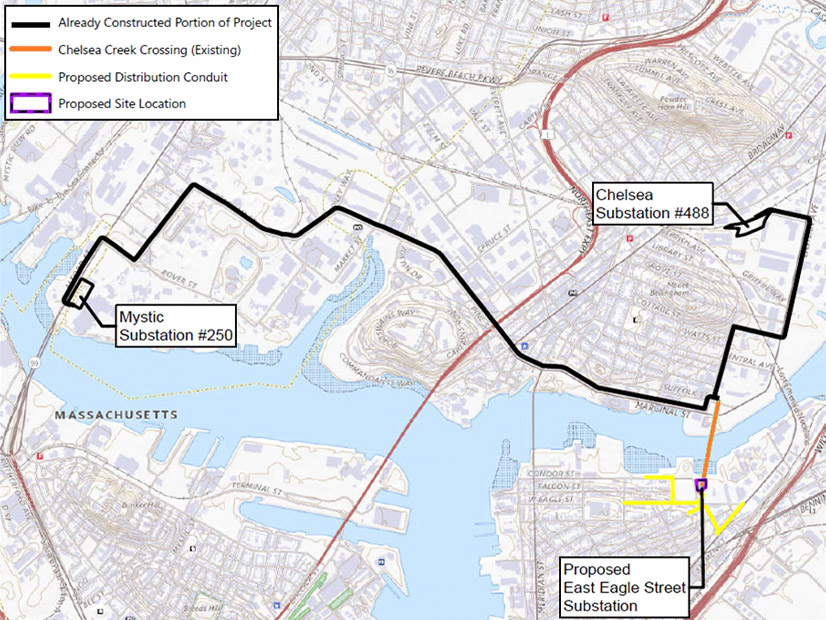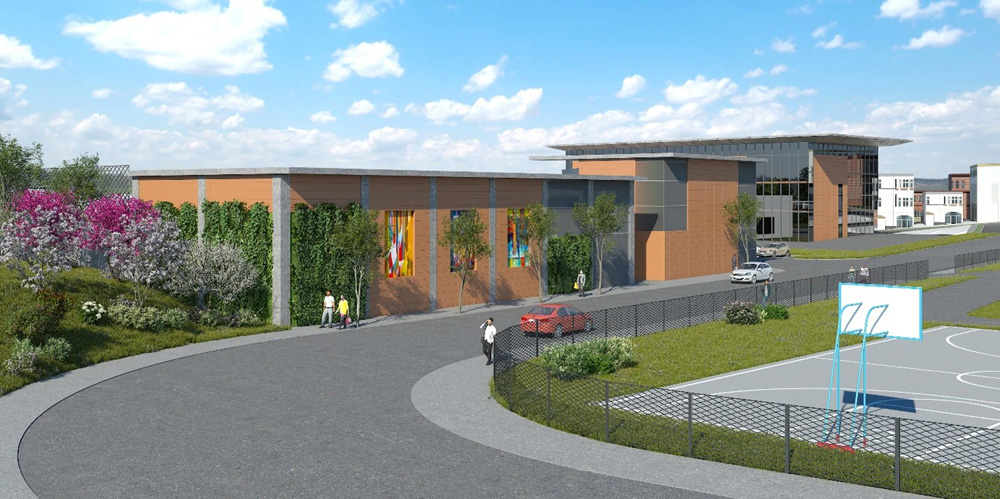
The long-standing fight over Eversource’s planned East Boston substation is not over.
The utility is asking the Massachusetts Energy Facilities Siting Board to expedite approval of 15 state and local permits and certificates it says have been delayed or not considered quickly enough.
But in doing so, Eversource has given the project’s many vocal opponents another opportunity to state their case for why the project shouldn’t go forward at all.
The EFSB initially approved the project, which has served as a powerful example of the conflict between regional transmission planning goals and local siting concerns, last February. (See Controversial East Boston Substation Approved.)
Eversource’s Case
Eversource, backed by Massachusetts officials, has warned that the substation is necessary to fill a fast-growing capacity need.
“Electric service in the East Boston and Chelsea area is at risk,” said Craig Hallstrom, the company’s president for regional electric operations, at a public EFSB hearing Wednesday.
He called the plan a “standard utility design” to locate a substation at a customer load center. East Boston, he said, is the only Boston neighborhood that doesn’t have one, instead being served by the Chelsea substation.
 A preliminary design concept from Eversource for the facade of its proposed substation | Energy Facilities Siting Board
A preliminary design concept from Eversource for the facade of its proposed substation | Energy Facilities Siting Board
“Without this new substation … it will be a challenge for this area to be part of the new electrification of systems like EVs and heat pumps,” Hallstrom said.
The project won’t be complete for several years once construction starts, but that hasn’t stopped Eversource representatives from employing grim warnings about immediate danger in their arguments for the plan.
“This summer, we’re hoping we have some beautiful hot weather as things go back to normal and we’re heading out of this pandemic,” said Nicole Bowden, an Eversource community relations specialist.
“You’re coming home from work. Your kids are coming home from camp. Everyone’s tired. You’re ready to get in the shower. You don’t have any electricity. The water’s not hot. You can’t sit down and watch the Red Sox game. The A.C.’s not blowing; the fans aren’t blowing. And it’s going to be three, four, five, six days of this.”
“We want to avoid this,” Bowden said.
Opposition Continues
The project is opposed by many East Boston residents and nearly every relevant elected official in Boston, from city council to the mayor to the state’s two senators. The city’s voters also overwhelmingly opposed siting the project there in a non-binding referendum in November.
Widespread frustration among opponents stems from the project’s location near public spaces, in a flood zone, and in an environmental justice community that has seen a long history of environmental hazards and pollution.
That opposition has extended to the company’s latest request to expedite the 15 certificates.
“As far as my interpretation, this is Eversource requesting to evade the permitting process and build this thing before the appeals that have been filed … are finished,” East Boston resident Leonard Olsen said at the hearing. “It’s equally absurd as the project itself.” Opponents have also challenged Eversource’s claims about the need for the project, noting that past load projections over the long process of planning the project have at times failed to come to fruition.
“It feels a bit like the boy who cried wolf, as we’ve seen what the actual summer peak loads have been in comparison to some of what the projections are,” said John Walkey, director of Waterfront & Climate Justice Initiatives at the advocacy group GreenRoots.
Some public officials representing the area recognize the need for more infrastructure to meet the area’s demand for electricity, especially considering decarbonization efforts. But they say Eversource has not met the moment.
“The opposition is not that we don’t need infrastructure to meet our greener future, that we won’t need to be able to generate for our EV stations,” said Lydia Edwards, a former Boston City Councilor who was elected to the state Senate in January. “I just think what we’ve been trying to say for the past several years, and in many languages, is that we can be more creative than this. This is not going to prepare us or help us become healthier in our future,” Edwards said.
What’s Next?
Anyone who wants to be a participant or intervenor in the EFSB case has until April 19 to file a petition.
The EFSB will hold an adjudicatory hearing on the Eversource certificate request starting on May 17.
In its consideration, the board will look again at the need for the facility, its design, and whether granting an exemption from state and local requirements is “reasonable and consistent with providing necessary energy supply for the Commonwealth with minimal impact on environment and lowest possible cost,” board member Donna Sharkey said.


